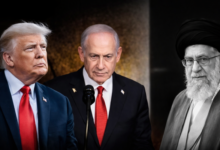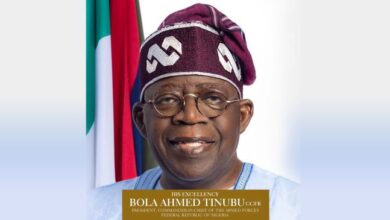2022 NLNG Golf Classic: Participants score organisers very high
 Participants at the ongoing NLNG Golf Classic have scored the Bonny Island Golf Club (BIGC), Organisers of the competition high on hospitality.
Participants at the ongoing NLNG Golf Classic have scored the Bonny Island Golf Club (BIGC), Organisers of the competition high on hospitality.
They also commended the organisers on the ambiance of the golf course.
Brandpowerng reports that the NLNG Golf Classic which is being sponsored by Nigeria LNG Ltd. is in its fourth edition.
The tournament began on Friday and would end on Sunday at the Bonny Island Golf Club in Rivers.
A cross section of participants who spoke to NAN on the sideline of a practice round/cocktail at the BIGC Club house said “the club management scored a first in terms of the organisation of the tournament and the ambiance of the course”.
Abubakar Abdullahi, a member of the IBB International Golf and Country Club, Abuja said his first impression about the club since his arrival has been “organisational and structural excellence” in every ramification of the word.
“Infact, this is my first time here and I must confess that I am very impressed with what I have seen already with just a few hours of my being here.
“Right from the entrance of the club and up to my clearance at the gate was seamless and fantastic.
“Indeed, the organisation and hospitality at the BIGC is top notch. Infact, I was wondering if I was still in Nigeria.
“I have also gone round to look at the course itself and I can tell you that it is simply fantastic and a sight to behold.
“The first thing that struck me was the nine-hole course and its unique style of play.
“It has nine greens and 18 different tee-boxes. I think that indeed stood out for me and makes it more interesting.
“I am currently playing off handicap 12 and though its my first time on this challenging course, I am looking forward to playing a nice game and also avoiding the water ways as much as possible,” he said.
Abiye Pedro, a representative of the Nigerian Agip Oil Company Golf team said the quality of the club and course as well as the organisation of the tournament was unrivaled.
“I like the compactness of the area. It is a close golfing community and the ambiance of the course is very unique and breath-taking.
“The quality and organisation of the tournament is unrivaled and befitting of a top-notch company like the NLNG.
“I am optimistic that this tournament will indeed be a memorable one for me as I am hoping to improve my handicap,” he said.
Chigozie Dimgba of Phyton Golf Club, Port Harcourt said the topography of the course was a beauty to behold, adding thst it was also a challenging one.
“Its a very nice and unique golf club surrounded by alot of water bodies which makes the ambiance a beauty to behold.
“I like the topography of the place and it looks like its going to be a good tournament for me.
“Its a course where you have to apply a cautious approach to your game. You don’t want to swing and drive too hard.
“You need to manage your game and its going to be all about game management because the harder your drive the more chances of you losing the ball.
“So, you want to manage your game and be very careful,” he said.
He said that Python Golf Club was the biggest golf course in the South-South and the South-East region, adding that their target was therefore to win the tournament.
Nyoki Ita of the Nigerian Content Development and Monitoring Board (NCDMB) said the course was indeed friendly as well as very challenging.
“I am coming from Bayelsa State and as a matter of fact, this is my first time at the BIGC. I am representing the NCDMB Golf team and also standing in for the Chief Executive Officer (CEO), Mr Simbi Kesiye Wabote.
“The course here is really friendly maybe because it is similar to the Bayelsa Golf Course but for the water hazards.
“I already lost two balls on hole two during my practice rounds which was actually no fault of mine because I thought the rough was a fairway because they are both evenly matched.
“But my caddy had to tell me that it was a rough and I subsequently picked up a one stroke penalty.
“On the whole however, I love the course. Hole five is definitely the hallmark of the course for me. Its very mind buggling and very whinny like an ox hole.
“But I was able to surmount it as I came out tops and thats just the fun of the whole game,” he said.
Ita said he was also impressed with the sense of organisation at the club, adding that everything starts and ends with a thorough and well structured leadership.
“From our arrival, to the cocktail, dinner, to our hotel rooms; the club management are so thorough and very well organised.
“These are the kind of virtues and values I expect every other golf club in the country to emulate and imbibe.
“I also love the ambiance and hope to visit and play here more often ” he said.
Effiong Udoka, from Benin Golf Club and a representative of NNPC Golf team said coming for the tournament had been a once in a lifetime memorable experience for him.
“The tournament for me has scored a first in many ways because as a visitor coming here for the very first time, it has been quite an experience of a lifetime so far.
“I got to travel by boat for almost two hours to get here for the very first time. It is indeed very exciting looking at the ambiance, the facilities here as well as hospitable nature of the people.
“It makes you want to ask if you are really in Nigeria.
“The game of golf is something I have been interested in but have always watched from afar.
“So, coming here to participate and compete among other golfers is indeed an experience I will never forget,” he said.












